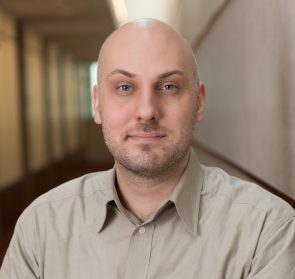FROM THE DVB NEWSROOM
On Nov. 1, the Security Force Monitor launched its report Under Whose Command? which reveals for the first time, the chain of command of the Myanmar military over a 12-year period. Fifty-one out of 79 senior army commanders have had accusations of disappearances, killings, rapes, and torture against units under their command since 2011.
“There is huge evidence that human rights abuses are being perpetrated in Myanmar on a vast scale, yet proving individual responsibility for war crimes is fiendishly complicated,” said Tony Wilson, the founder and director of Security Force Monitor.
Twenty-eight out of 51 commanders received promotions after the alleged human rights violations occurred. Three others may be promoted in the future, added Wilson. He sat down with DVB to discuss the Security Force Monitor’s report on Myanmar.
DVB: What is the Security Force Monitor? Which topics does it focus on?
TW: The Security Force Monitor is a project of the Columbia Law School Human Rights Institute. Our mission is to use open source information to build the chains of command, identify commanders, and understand the operations of police, military and other security forces under government control in countries around the world.
We started in 2016, and to date, we’ve covered the police or military or other forces in about 20 different countries around the world. We started initially looking at Mexico and Nigeria…and then obviously with Myanmar and the situation there.
We aim to bring this information together to make it public and hopefully to inform and support journalists, human rights groups and others who are concerned about the actions of these forces and are seeking accountability for any alleged violations that these forces may have committed.
DVB: What were the key findings of your most recent report on Myanmar?
TW: First is that we’ve identified all of the senior army generals in charge of units across Myanmar over a 12-year period. And of those almost 80 commanders, more than 60 percent have had allegations of torture, rapes, killings or disappearances by units under their command.
So these are direct allegations from human rights reporting from NGOs working in the country, the U.N., and others that identify a specific perpetrator or accused of committing one of these violations.
And what our research did was build the chain of command up from those individual units to the senior commanders who were in charge at the time that those alleged violations took place.
More than half of those commanders were promoted in rank at least once, some of them multiple times in rank after an allegation has been made by a unit under their command. And then finally, it is that in many parts of the country, every person who ever served as commander had obligations under their command while they served.
DVB: Was there substantial evidence within the 12-year time frame indicating human rights violations which could be classified as a war crime or a crime against humanity?
TW: Great question. So one of the reasons we did this research was that these individual violations are a part of war crimes and crimes against humanity. But part of building the case and proving that legally is difficult.
[We need to prove] that these alleged violations are systematic, that they’re widespread, and that they’re part of state policy or they’re part of a plan by the government to do this. This research provides a lot of information for making those legal arguments.
DVB: How was the Security Force Monitor able to gather its data?
TW: As far as pulling this information together, what we did was cross-reference every piece of information that we came across.
We also individually source every single claim or every single bit of data in our dataset. And so that’s really allowed and will allow human rights groups, journalists and others who use this information, such as courts or other legal proceedings.
DVB: Who is considered the most responsible for crimes committed in Myanmar?
I think it’s really important to keep the focus on all of the commanders that are connected through the chain of command to these allegations.
DVB: Thank you so much for sharing your research with us.
*This interview has been edited for brevity and clarity.



